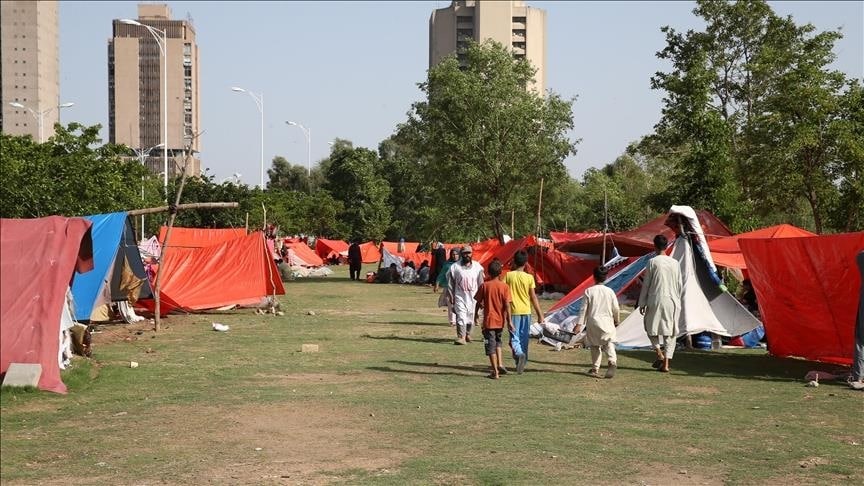‘Return must be voluntary’, UN on Pakistan’s plan to evict Afghan refugees
UN seeks more clarity on Islamabad’s plan to deport migrants.
Wants all those under international protection not to be deported.
Pakistan plans to deport 1.1m refugees, including Afghans, by Nov 1.
Hours after the caretaker government’s decision to deport over 1 million “illegal immigrants” after the November 1 deadline, the United Nations (UN) said Tuesday that refugees residing in Pakistan should be allowed to exit the country voluntarily and no pressure should be exerted on them.
“Any refugee return must be voluntary and without any pressure to ensure protection for those seeking safety,” Qaisar Khan Afridi, a spokesman for the UN High Commissioner for Refugees (UNHCR), told Anadolu.
The interim government earlier in the day ordered all illegal immigrants, including 1.73 million Afghan nationals, to leave the country or face expulsion after revealing that 14 of 24 suicide bombings in the country this year were carried out by Afghan nationals.
“We have given them a November 1 deadline,” said Interior Minister Sarfraz Bugti, adding that all illegal immigrants should leave voluntarily or face forcible expulsion after that date.
Bugti said some 1.73 million Afghan nationals in Pakistan had no legal documents to stay, adding a total of 4.4 million Afghan refugees living in Pakistan.
The UNHCR official termed the press reports about a plan to deport undocumented Afghans “disconcerting” and said the body was seeking clarity from “our government partners”.
Afridi asked Pakistan to come up with a plan that ensures all Afghan nations with international protection are not deported, noting that Islamabad has been “generously hosting refugees for more than 40 years”.
“We must also keep in mind that those fleeing persecution often do not have the necessary documents and travel permissions,” he added.
Afridi further said that the UNHCR is ready to support Pakistan in developing a mechanism to manage and register people in need of international protection on its territory and respond to “particular vulnerabilities.”
“Pakistan has remained a generous refugee host for decades. This role has been acknowledged globally but more needs to be done to match its generosity,” he added.
Islamabad has received the largest influx of Afghan refugees since the Soviet invasion of Kabul in 1979.
Pakistan has also maintained militants — including those of the Tehreek-e-Taliban Pakistan (TTP) — use Afghan soil to train fighters and plan attacks inside Pakistan.

